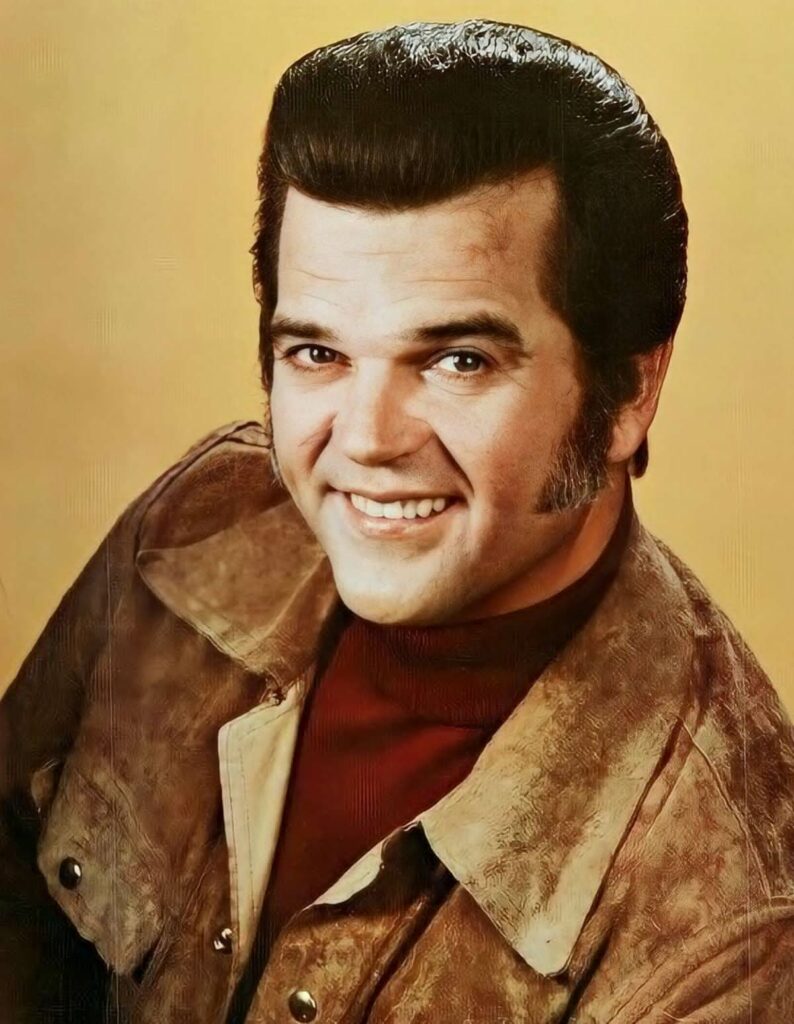
A bold country ballad about a delicate, intimate boundary being crossed for the very first time.
Ah, the year 1973. It was a time of seismic cultural shifts, yet the heart of country music, personified by the ever-charismatic Conway Twitty, still beat with an unwavering rhythm of adult emotion and unvarnished truth. And truth, it turns out, can be a little controversial. His self-penned single, “You’ve Never Been This Far Before,” released in July 1973 as the title track from the album of the same name, wasn’t just another tender ballad; it was a hushed, intense confrontation with a moment of profound intimacy, which, for many, was simply too much for the airwaves.
Despite its racy, almost forbidden nature for the era, the song soared on the charts. It became Twitty’s 10th solo Number One hit on the Billboard Hot Country Songs chart, where it reigned for an impressive three weeks. More remarkably, this sultry slice of countrypolitan became his only song from the country chart to make a significant crossover splash, peaking at Number 22 on the mainstream Billboard Hot 100. This crossover success, in the face of outright bans by some more conservative radio stations, speaks volumes about the song’s undeniable power and the magnetic pull of Twitty’s vocal delivery.
The story of the song unfolds in real-time, in the sacred space of a bedroom or backseat, with Twitty narrating the scene in his signature spoken-word style, his voice a low, gravelly caress. The meaning of the song is deeply rooted in the sensual experience of a man comforting a woman who is about to—or is in the act of—making love for the first time with him. The lyrics paint a picture of intense emotional and physical tension: “I can almost hear the stillness / As it yields to the sound of your heart beating / And I can feel your body tremble / As you wonder what this moment holds in store.” The “forbidden places” his “trembling fingers” touch are not ambiguous, regardless of Conway’s later, perhaps diplomatic, public insistence that the song was about something as innocent as holding hands.
But what truly resonated, and what elevated the song beyond mere sensationalism, was the vulnerability and the reflective depth woven into the final verse. The true story of the song isn’t just about a physical boundary; it’s about an emotional one. The character Twitty portrays acknowledges the woman’s internal struggle and doubt: “And you’re wondering if tomorrow / I’ll still love you like I’m loving you tonight.” He then offers a gentle, compelling reassurance that tonight will only make him love her more—a promise of commitment to assuage the fear that comes with taking such a monumental, trust-based leap. It’s this tender, human touch that rescued the track from being merely a controversial one-off and cemented its legacy as one of Twitty’s most evocative and enduring pieces.
It’s easy to look back now, in a world saturated with explicit content, and wonder what the fuss was about. But in 1973, in the heart of the country music establishment, Twitty was pushing boundaries with a quiet, sensual strength that many found shocking. He became, for a generation of fans, the ‘high priest of country music’—a man who understood and articulated the mature, often complicated, passions of adult life, doing so with a sincerity that made his listeners feel seen and validated. This song, with its velvet-smooth production by Owen Bradley, remains a nostalgic touchstone, a memory of a time when a simple three-minute record could feel both intensely personal and culturally revolutionary. It’s the soundtrack to countless stolen moments and whispered promises, forever echoing the beautiful, terrifying intimacy of crossing a line for the very first time.